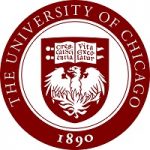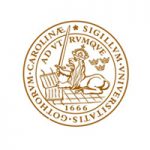项目介绍
Graduate students pursuing a PhD in Microbiology take a minimum of nine courses. Students consult the Graduate Advisor of the Committee on Microbiology to develop a plan of study that fulfills the program course requirements and meets the student’s particular interests in microbiology. The philosophy of graduate coursework is to develop a foundation of knowledge for the first-year graduate student. Of course, the basis of graduate training in microbiology is the performance of original laboratory research, which begins in winter or spring of the first year.
Microbiology coursework is complemented by a set of courses in other disciplines in the Biological Sciences Division including practical courses in Quantitative and Computational Approaches to Biological Research. Interdisciplinary study is a hallmark of our program and is encouraged.
Additional information regarding the curriculum for graduate students in the Committee on Microbiology can be found in the Committee on Microbiology Student Handbook.
I. Lecture Classes for Graduate Students of the Committee on Microbiology
Click here for course descriptions
Fall Quarter Classes
| BCMB 30400 BCMB 30600 BCMB/MGCB 31400 BCMB/MGCB 31600 ECEV 32500 GEOS 36650 IMMU 31200 MICR 30600 |
Protein Fundamentals Nucleic Acid Structure and Function Genetic Analysis of Model Organisms Cell Biology I Evolutionary Aspects of Gene Regulation Environmental Microbiology Host Pathogen Interactions Fundamentals of Bacterial Physiology |
Winter Quarter Classes
| BCMB 31100 BCMB/MGCB 31200 BCMB 31700 ECEV 33365 ECEV 35600 GEOS 33800 IMMU 31500 MICR 31600 |
Evolution of Biological Molecules Molecular Biology I Cell Biology II Evolutionary and Genomic Medicine: Dynamics at the Host-Microbe Interface Population Genetics Global Biogeochemical Cycles Advanced Immunology I Molecular Basis of Bacterial Disease |
Spring Quarter Classes
| BCMB 30800 BCMB/MGCB 31300 BCMB 32200 BSDG 55000 GEOS 36600 IMMU 30266 IMMU 32000 MICR 34600 MICR 34101 |
Single Molecule Biochemistry Molecular Biology II Biophysics of Biomolecules Scientific Inquiry/Ethical Conduct Geobiology Molecular Immunology Advanced Immunology II Introduction to Virology Molecular Genetics and Cell Biology of Prokaryotes |
II. Training in Quantitative and Computation Approaches to Biological Research
Quantitative Approaches at Marine Biological Laboratory
Incoming students from all graduate programs in the UChicago Biological Sciences Division (BSD) attend the Quantitative Approaches Bootcamp at the Marine Biological Lab (MBL), an affiliate of the University of Chicago. The goal of the Quantitative Approaches Bootcamp is for our students to develop computational, statistical, and professional skills, become familiar with the MBL, and get to know your fellow first-year students in the BSD through an intensive retreat atmosphere.
Software Carpentry Workshop
Software Carpentry’s mission is to help scientists and engineers get more research done in less time and with less pain by teaching them basic lab skills for scientific computing. This hands-on workshop is aimed at intermediate programmers that know the basics of R and want to learn more. It is ideal for past attendees of our novice Software Carpentry workshops (e.g. 2013, 2014), incoming graduate students that attended the MBL Quantitative Approaches Bootcamp, and graduate students or postdocs that currently use R for their research.
III. Seminars of the Committee on Microbiology
During the Autumn, Winter and Spring Quarters, the Committee on Microbiology will host a seminar series comprised of seven to ten presentations by faculty invited from other institutions. A reading and discussion session will accompany the seminar series, MICR 39000 Introduction to Experimental Microbiology. In the session, which meets for one hour on a day preceding each week’s seminar, first year graduate students will discuss with their peers and a Microbiology faculty member three original research papers of the invited speaker. Following the seminar and the conventional question and answer period, first year graduate students of the Committee on Microbiology are invited to question the speaker on her or his research and to discuss their own research for a period of 1 hour. In this manner, we will provide students with an intellectual environment that reveals the discovery process and research frontiers in various laboratories and fields. First year graduate students are required to register for the course, MICR 39000 Introduction to Experimental Microbiology, and will receive one credit for attending the seminar series (and the reading/discussion section) in the Autumn, Winter and Spring Quarters of the first year of graduate school.
IV. Research Forums of the Committee on Microbiology
All graduate students and honors undergraduate students of the Committee on Microbiology will present at a research forum once each year. The research forum meets on Fridays at 12:30 pm in CLSC 119 during the autumn, winter and spring quarters. Students and postdoctoral fellows present their recent research data for critical evaluation by the faculty of the Committee on Microbiology. This course provides a venue to ensure continued progress of graduate students in their thesis projects. First year graduate students are required to register for the course, MICR 40000 Microbiology Research Forum, and will receive one credit for attending throughout the Autumn, Winter and Spring Quarters of the first year of graduate school.
联系方式
电话: 773.702.1234相关项目推荐
KD博士实时收录全球顶尖院校的博士项目,总有一个项目等着你!





